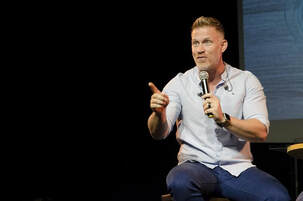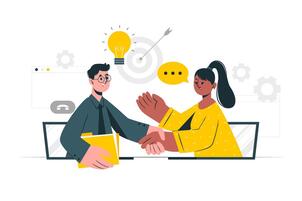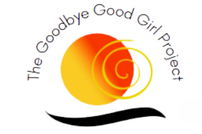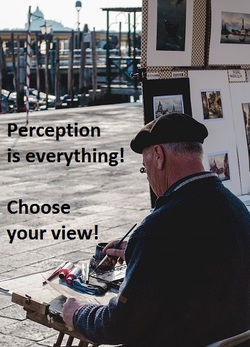 When you watch movies or TV shows with strong female leads, do you find yourself wishing you were like them? How about Captain Sharon Raydor on Major Crimes? Unflappable, calm, and quite certain of what she knows and how she damn well feels about it, tooreal I find myself aspiring to some of her balanced behaviors. Why should you hold yourself back from being boldly who you are? Because you are afraid of what "they" will think of you? Because you feel awkward walking outside of those well-known comfort zones of yours? These cease to be "good enough" reasons to hold back once you realize the cost to you of being anything but bold! When you aren't bold, you don't ask for or get what you really want - at work, in life, you just don't get what you want! When you aren't bold, you don't ask yourself what it is that you want to do next...or what you want to stop settling for...or what behavior you are determined to undertake! When you aren't bold, risk goes away. GOOD risk. The kind of risk that allows you to reach for stars, or go for a big dream at least once.
0 Comments
 Thanks to Pexels for this image! Thanks to Pexels for this image! How many times have you heard "don't be so emotional!"? The real situation is that we need to understand how to understand and respond to our feelings in such ways that we harness their power! When you are happy or contented When you feel good, there is a vibrational reality that goes out from you and impacts others, making people around you feel good too. When you feel really bad, the same thing happens: a vibrational frequency goes out and impacts those around you. The question is: Can you choose which one you want to offer to yourself and the world? The answer is: You absolutely can! [Click 'read more' to the right, below, to keep reading]  What's so special about you? Well, I'll tell you. Because it is the specialness of you that people resonate with. No one really wants everyone to be the same, so turning out a bunch of speakers who are all like one another is a useless thing to do. Plus, it's boring for both you and your audiences, whether you're on or off a stage! So here are some aspects of you that are just so special: Your way of looking at the world and feeling the way you do about the things that matter to you - those are special aspects of you. Your way of expressing yourself, your turns of phrase, your accent, your gestures - those are all special, unrepeatable and unique. Your particular combination of humor and knowledge - unique to you and what you bring forward into your life, your business, your relationships! The stories you choose in order to highlight your points of any talk, the cadence of your voice. Think these things are no big deal? If so, understand that no one can do a talk like you do - no one anywhere. And understand too that individuality and being authentic is what we love about actors, singers, performers of all kinds! You are unique, and when you understand that who you are is enough, then the fun begins. And it never ends. Story is the connective tissue that keeps the attention of the speaker and the spoken to. It is the stringing of curiosity with enlightenment and next-problem, leading into that loop that you decide when to end. It looks something like this: You have a problem to solve - think of Law & Order. In that show, the whodunit is the question. That's the problem to solve. The Step 1 is a discovery or an idea or a realization that current answers are no longer working. From that step comes from a realization - something that drives curiosity to know what the next step to the solving of the mystery might be! Step 2 and Step 3 follow the same pattern - and Step 4 and 5, whatever number you have need of. Then when you are done stringing all of your brilliant points together, you have to explain - just like every detective does at the end of the story - what this string of points really indicates! Granted, this is only one way of creating story in your work, but even if you are talking about data - something that seems the most un-story-like - you are going to be able to create a story that drives the engagement and interest of your audience, and makes your point with the emotion and focus that are necessary for impact in your presentations! Having an outline of sorts is helpful in looking at your talk from a creative and story point of view. Story makes any sharing of any type of information suspenseful. Have fun creating drama for your audience! Check out our Signature Talk option for assistance with creating your most focused and story-based presentations.
Her best friend was about to get married, and she wanted to surprise her at the reception but was absolutely clueless about making it work.
Her intention was marvelous: She wanted to somehow sneak up to the stage with the new husband but hide him behind her. She would get to the mic and announce that a singer was making a special appearance and then he would step forward and the band would play their favorite song and he would start singing. His new bride would not expect him to be singing anywhere out in public, so this would be a lovely gift. We had to be tactical about how and when she would get up on stage and how she would get him up there. Once that was taken care of, we had to talk about how she would introduce him, how she would feel comfortable, how she would feel the least nervous possible. For most people, I have found that creating what actors call a "through line" of storytelling makes remembering what they want to say more fluid and more memorable. Memorization is awfully tough to carry off when you're feeling really frightened; your brain just doesn't engage the same way it does when you're calm. Instead, what we did is determine the stepping stones of her talk, one leading obviously to the next so that she could speak with self-confidence. Her nervousness was something else again; she had it in her mind that this was a part of her personality. Certainty about our identity is the biggest thing that can delay progress with public speaking and confidence. If you are certain that this is your personality and that you cannot change it, the only thing that will shift this is experience. That is why when I work with clients, I get them on their feet and helping them experience something completely different than their "norm". This opens their options not just as a public speaker but as an individual with many more options in their lives - both personal and professional. Good stuff!  Think of a popular public speaker. Are you picturing this person in your mind? What's the first thing you notice? The first thing I notice is their confidence. They just look comfortable and at ease and smiling up on stage, in my mind's eye. And this gives rise to the #1 Public Speaking Myth: that you have to be a confident person in order to be a good public speaker. Let me tell you why this just isn't true. I think you'll be relieved, and maybe even a little bit surprised! You see, the kind of confidence that allows you to grow into great public speaking is actually a by-product of something else: knowing the elements of speaking that you can lean on. Once you have something that holds you up no matter what, you have the confidence to go onto that stage, or into that boardroom, even if you are nervous. Confidence is borne of knowing, understanding, and getting familiar with yourself. It is learning that the net that holds you is consistently there: the story you are telling, how to be comfortable in your own speaking style - with a little bit of flair thrown in - and what your main point is so that no matter how off-kilter you get you can always find your way back. A bit like Hansel and Gretel leaving crumbs along the path, isn't it! It's exactly like that!  "Communication and the Contractor": The most important communication tool... Communication - I often say - is the most important art form never taught. It isn't taught in high school and unless you sign up for it, not in college either! Yet we are expected to understand one another, and make ourselves clear. To that I say: It's amazing that it happens as often as it does! That's not a pessimistic statement but one that comes from understanding how much meaning is buried in our words and our minds that remains unexpressed. We take one another at face value - actually, more at "word value". We believe that others mean what they say. When we learn that this is not always true, we tend to get distrustful of the whole process and just hide ourselves in, "They're an idiot. They should have said what they meant." With the most important tool in communication, you can avoid a lot of that. What is the most important tool? Questions! For instance, say someone says something that really ticks you off. What do you do? Well, you get pissed, of course! But what do you do to make sure that you are getting ticked off for the right reason? How do you avoid a later conversation where your partner in convo says, "But that isn't at ALL what I meant!" Ask a question. I learned a neat little trick once that makes people stop whatever they're doing, talking about, or thinking, and listen up!
It's silence. Not just silence, but stopping talking in the middle of a sentence. Just. stop. talking. And anyone/everyone else will gradually stop talking as well, because there is something in the rhythm and tone of our speech that speaks to our brain before the meaning speaks to it. In other words, we are accustomed hearing speech rather like we do a song! If the song doesn't end but is instead abruptly stopped, we notice! There is no difference in how we hear speech. So the next time you are in front of a room of people speaking to one another and you need their attention, grab that microphone, you could say what you ordinarily would say, "May I have your attention please?" "We are coming back now, would everyone take your seat?" or you could say something longer and then stop in the middle. Like this: "Okay everyone, I know we're having a fantastic time talking to one another but it is time to come back to the seminar. So everyone, please take a seat, and I know that this is a great deal of fun, but..." and stop talking. If you just wait...one by one, people will stop talking and turn to the stage to listen. It's a fun little trick, and it works. Enjoy! That is what self-expression is: you out loud.
Do you know what makes that a tough nut? It's really a social thing - we have been trained to judge ourselves against impossible standards of perfection and we never come out well when we do that sort of thing. We look not just at the ads and images that flood into our brains from social media, television, streaming - you name it! - but we also hear the internal judgments that we think are helping us...but aren't. I know, you have been taught to work on your weaknesses so that you can become better at your work and become The Big Cheese in some way. If you haven't already been told this, let me be the first to clue you in, because this is going to save you MAJOR time: What you focus on is what increases. So if you're focusing on what weakens you, you are looking in the wrong direction. What are your strengths? Your natural strengths? Are you a friendly person? Warm? And people gravitate to you? Are you a scientifically-minded person that people always come to for clarity of understanding? Are you the kind of person who takes one look at a set of disparate elements and synthesizes them, amazing those who have been struggling to understand how all of those pieces fit together? What are your natural strengths? Because when you start to lean into those, what comes forward for you as a communicator and speaker is your natural enthusiasm, your natural attractant factor, and your natural ease with expressing exactly who you are. And while that is not the end of the journey - there are other skills to add into your self-expression mastery - it is absolutely the start. #self-expression #public speaking #publicspeaking911 #naturalstrengths Are you willing to move through uncomfortable situations rather than avoid them? Are you willing to respond to work-related situations rather than to react to them? We can't help but react; it's an emotional situation that happens within instantaneously...in our minds and our bodies. Responding, however, carries within it the option of choice. When we choose how to respond to uncomfortable situations, we are giving ourselves options. Or...we can stay with our defensive reactions, karate-chopping both our real and perceived enemies identically and without discernment. At best, our defensiveness will make us miserable (and that's at its best!); at worst, our defensiveness will take down our business's effectiveness. For instance: A client says to you, "You know, I'd really rather you had given me more of xyz when I asked you for abc!" Your internal reaction, and your internal dialogue, is inelegant: "What the hell are you saying to me? That's not what you asked for! You said you wanted xyz, you moron! Don't blame me for not giving you what you didn't tell me you wanted!" When you are hijacked by defensiveness, you want to tell your client to take a hike (and that's you being polite at that moment!). When you are in control of your response, you might take a breath and take stock of what is important:
What exactly are your options when you are reacting defensively and you would rather respond? (1) Communicate! At least for a few moments, give this person the benefit of the doubt. Give yourself a moment to find out if what you think is being said, is really what is being said! Believe it or not, there is usually a possibility of misinterpreting what another is trying to communicate. If you use the phrasing "When you said xyz, it sounded to me like you were saying abc! Is that what you meant?", you will be opening the door to a calmer and more professional interaction, and you will increase your possibility of both learning something, and maintaining a relationship. Keep asking questions until you have clarity about what was said and what was meant. Then you can respond from a place of calm strength, and you will feel informed and far less upset.
seriously benefits you. And that is your gold nugget. Could the gold nugget be that, in the midst of your extreme discomfort, you took a very mature and challenging moment to check in with your client to determine if your perceptions were accurate? Or was the gold nugget that what your client said was actually helpful to you, when you let go of feeling judged? Or was your gold nugget that you found an elegant way to free yourself and your client from a bad relationship by respectfully ending it? You have to grow the discernment and self-awareness to know!
One thing is for sure: If you simply react, and never find ways to get to the power of choice in how you respond to colleagues and clients, you either slow down your business or you minimize your comfort. Neither option is optimal, and neither is worthy of who you are: a business professional. |
AuthorLori Kirstein believes in following and creating only those rules that t support your best self in work and in life. Communication done with awareness and skill is not only possible, it is life and career-changing. Communication is just a different kind of learning. And it is one that brings incredible rewards and joy in all aspects of our lives. Archives
June 2024
Categories
All
|




 RSS Feed
RSS Feed